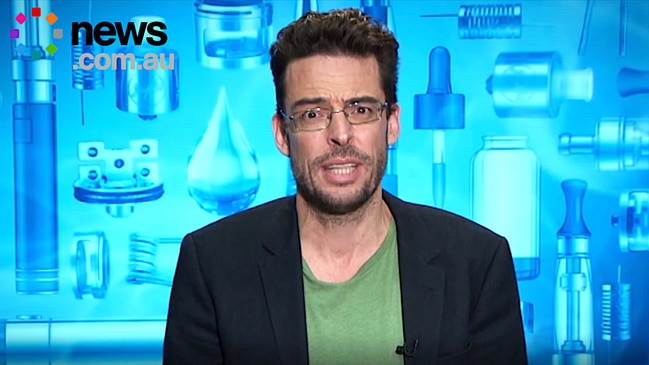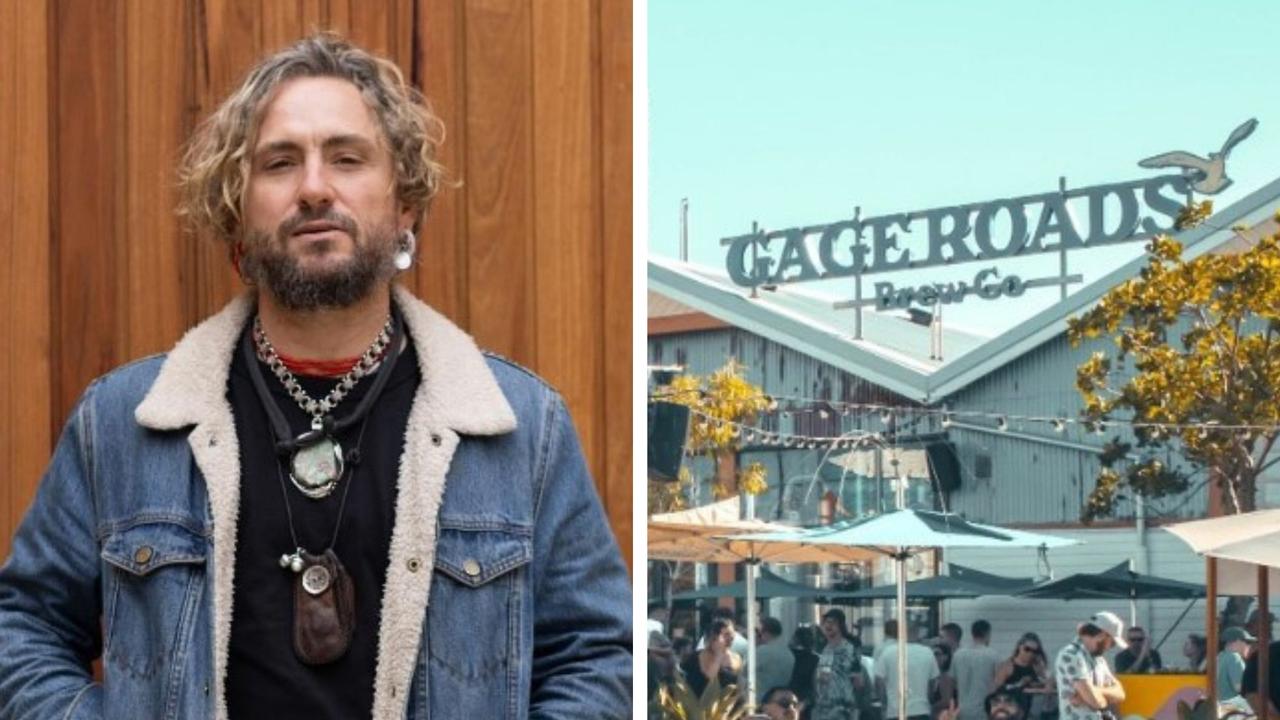NSW’s ‘ridiculous’ new law: Vapers ‘punished’ for ditching cigs
NEW laws are set to punish ex-smokers trying to give up. Critics say that e-cigarette smokers are being turned into social pariahs.

National
Don't miss out on the headlines from National. Followed categories will be added to My News.
WELCOME to New South Wales’ “ridiculous” new law under which smokers eschewing cigarettes for vaping stand to be hit with $550 fines — for not lighting up.
Laws set to take effect across the state in July will see users of electronic cigarettes (e-cigarettes) fined up to $550 if they’re caught vaping in public spaces or on public transport.
The ban, championed by Health Minister Brad Hazzard, passed through the NSW Parliament earlier this year and means anywhere that smoking is banned, vaping is too.
That includes shopping centres, libraries, cinemas, bus stops, train stations, buses and trains, sports grounds, near children’s play equipment and outdoor dining areas.
Supporters of the law say there are dangers of passive vaping, like passive smoking.
But vaping and e-cigarette proponents say that view conflicts with evidence from overseas, and the new laws will turn vapers — many of them using e-cigarettes as a tool to give up smoking — back into the social pariahs smokers already are.
Worse, they’ll be relegated to vaping right alongside those partaking in the habit they are trying to kick.
And they’re fired up about it.
“LIKE HOLDING AN AA MEETING IN A PUB”
Annette Huppatz is a board member of the New Nicotine Alliance Australia, a consumer advocacy group advocating vaping and tobacco harm reduction.
But first and foremost, the 53-year-old Wollongong woman is a vaper.
She discovered vaping almost four years ago, after more than three decades as a smoker, “and in the end, a chain smoker”.
Ms Huppatz bought a vape and some liquid nicotine to have on standby when her cigarettes — and money — ran out. Then she tried it, and liked it.
It wasn’t long before she ditched the cigarettes totally.
“Vaping was cheaper, it didn’t stink, I felt much healthier and cigarettes became revolting to me,” she said.
Ms Huppatz still vapes, with a minimum dose of nicotine, and enjoys a healthier life, which is also free of cigarette stench, shelling out ridiculous amounts for heavily-taxed cigarettes, and worrying about passively passing on negative health benefits to others.
She also — until now — loved the freedom vaping offered her.

“I could do it most places without interfering with anyone else’s comfort,” Ms Huppatz said, admitting she relished — and even occasionally felt a little smug about — no longer being relegated outside “with the other second-class citizen smokers”.
“It wasn’t like I was vaping in restaurants or in people’s faces, but I could find a nice quiet place outside, if I was out, to vape. I wasn’t hurting anyone else, and I wasn’t a social pariah like when I was a smoker,” she said.
But Ms Huppatz is filthy about the new law, which she said forced vapers right back into the midst of the very habit they may be trying to quit.
“Just because I smoked for 30-plus years doesn’t mean I want to be back among the smokers,” she said.
“When you’re new to vaping, the greatest moments of weakness come when you’re surrounded by smokers. It’s when you’re likely to lapse, because initially, vaping isn’t as satisfying as smoking.
“So these laws make about as much sense as holding an AA (Alcoholics Anonymous) meeting in a pub”.
“PUNISHED FOR QUITTING”
The feeling among many vapers is — as they’ve butted out, maybe politicians should butt out of telling them where to vape.
Ms Huppatz said some vapers are keen to test the new law and may risk a $550 fine to see the issue aired in court — by vaping on, regardless, outside specified smoking areas.
“The feeling is ‘I did the right thing. I did what you and all the health authorities said you wanted, and quit, and now you want to shove me back with the smokers and make me a pariah again?’,” she said.
“I quit, and now you want to punish me again and send me back out there?
“Vapers feel strongly about this. We are improving our health, and we have a human right to do that, and we are being limited in doing that.
“It’s a ridiculous law and sometimes those laws need challenging.”
“PASSIVE” VAPING ARGUMENT
Cancer Council NSW is among a number of health groups embracing the law which sees NSW fall into line with similar vaping bans in Queensland, Victoria and the ACT.
NSW’s chief health officer, Dr Kerry Chant, says there’s evidence of potential risks from e-cigarette vapour — even if they do not contain nicotine e-liquid, which is banned in Australia.

And Federal Health Minister Greg Hunt continues to oppose relaxing law changes around nicotine vaping bans, having previously stated it will “not happen on my watch”.
That’s despite compelling evidence on e-cigarettes published by Public Health England (PHE) this year that found e-cigarettes were saving thousands of lives each year.
Mr Hazzard says the NSW Government has acted “to protect vulnerable bystanders from passive exposure to vapour”.
“Despite claims to the contrary, the jury is still out on the alleged benefits of e-cigarettes. The medical advice from Australian authorities is we need to err on the side of caution,” he said.
Ms Huppatz says that view ignores the overseas experience, where vaping is endorsed as a quit-smoking aid, is found to be far less harmful than cigarettes, and shows no identified risks to non-vapers in regard to second-hand or passive vaping.
“NO IDENTIFIED HEALTH RISKS TO BYSTANDERS”
Australian Tobacco Harm Reduction Association chairman, Dr Colin Mendelsohn, says international experts have concluded “there have been no identified health risks of passive vaping to bystanders”.
“A recent study demonstrates that e-cig vapour consists of liquid droplets that evaporate within seconds after exhaling. Smoke particles linger for 30 to 45 minutes,” Dr Mendelsohn said. “The views of Australian medical organisations conflict with those from overseas, in particular the UK.
“Another study found that the lung cancer risk from passing vaping is 100,000 times less than passive smoking. Toxins causing lung cancer are produced mainly by combustion and curing of tobacco leaf. Neither occurs in vaping.”
Dr Mendelsohn said “in the absence of material harm to bystanders, it is hard to see any reasonable justification for government interference”.
“There is an issue of nuisance or etiquette. Some bystanders may find the aerosol annoying, as with strong perfume or body odour. We manage these issues with courtesy and consideration for others — not legislation.“
Originally published as NSW’s ‘ridiculous’ new law: Vapers ‘punished’ for ditching cigs



